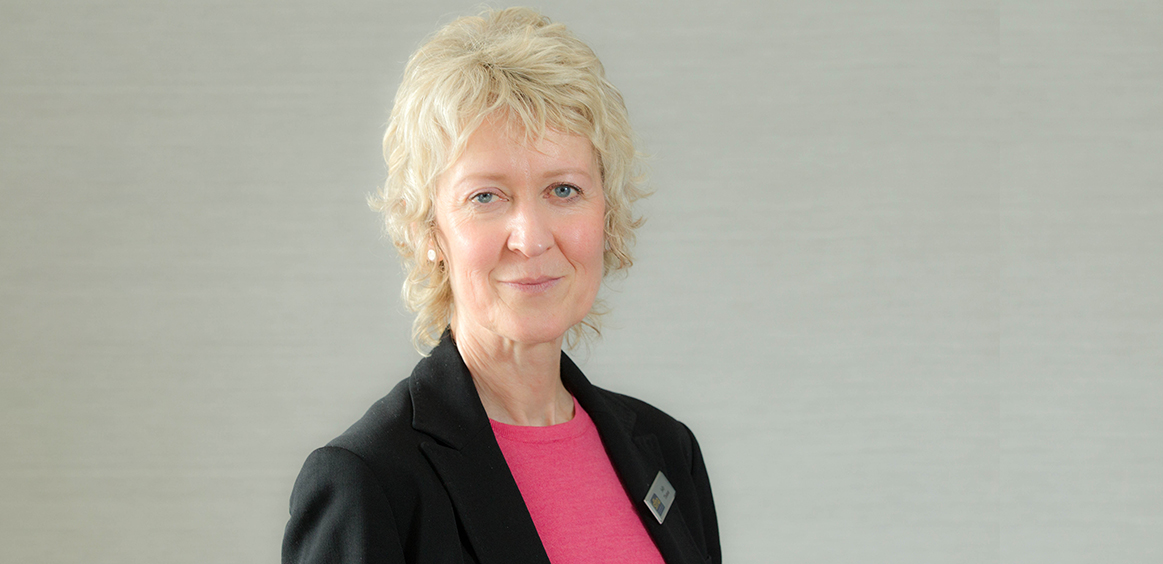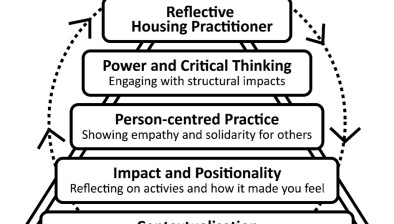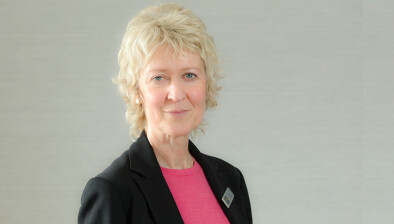Sally Thomas: Together, we must create the future we want to see

Sally Thomas
Sally Thomas reflects on the SFHA’s recent Annual Conference and how collaboration is key if the sector is to create the future it wants.
It was so good to see so many of our members, associates and partner organisations, in person, at our recent Annual Conference. All SFHA conferences take a great deal of planning, and this one was two years in the making, so I can’t tell you how pleased – and relieved – we were that it was able to happen. We were delighted that so many members shared their insight and experience over the two-day event.
My conference address focused on how we must create the future, and not simply try and predict it, or, even worse, wait for it to happen. Fundamental to this is creating it together, as a movement built on shared values of equality and social justice, leaving no-one behind. As a sector, there are many challenges facing us: delivering homes despite rising costs, supporting tenants through the financial crisis, and tackling climate change and fuel poverty while remaining financially viable businesses.
The biggest challenge of all – the climate crisis – is, counter intuitively, the crisis that should give us the most hope. As our keynote speaker on tackling the climate emergency, Dr Martin Valenti of the South of Scotland Enterprise, said: “We must see the climate emergency as something we can tackle – it’s a mountain to climb, not a cliff edge to fall off.”
It’s the emergency most likely to force not just world leaders but all of us to share more information, costs and responsibilities – to collaborate – because the costs of not doing so are the lives of all of us. The poorest people, in every country of the world, including ours, contribute the least in terms of emissions but, overwhelmingly, bear the brunt of the impact of climate change.
The work that lies ahead must reduce both poverty and carbon emissions. On a policy level, there has been a lot of good work recently, including the Scottish Government’s Heat in Buildings Strategy and additional funding via the Social Housing Net Zero Heat Fund, for example.
There was welcome news on energy efficiency and climate change during the first day of our conference as the Scottish Government released its response to the report of the Zero Emissions in Social Housing Taskforce (ZEST), which I co-chaired last year. The government has accepted the overwhelming majority of ZEST’s recommendations, including the commitment to undertake a review of the Energy Efficiency Standard for Social Housing Two (EESSH2). SFHA has been calling for this review as a matter of urgency as we have serious concerns regarding the current target. We need a more holistic approach, with adequate funding and supporting policies, to ensure tenants can afford to heat their homes while also allowing our members to work towards Scotland’s net zero objectives.
Before we move forward with EESSH2, housing associations need a clear pathway towards meeting a standard that works for both social landlords and tenants. We’re keen to see the Scottish Government move at pace on the next steps, and SFHA and our members are ready to support this work and help create a standard that will have a real impact on tackling fuel poverty in Scotland.
However, there’s no getting away from the eye-watering costs involved in moving to net zero housing. The Scottish Government says that the cost of delivering energy efficiency measures in social housing is around £6 billion. The Social Housing Net Zero Heat Fund meets only around 3% of that cost. We must play our part in fighting both fuel poverty and climate change, while, at the same time, housing associations and co-operatives must remain viable businesses – the sector cannot fund all the decarbonisation work required itself.
Given the multiple challenges housing associations are responding to, it is imperative that we secure the right balance of funding. We have initiated discussions with members and the private lending sector to explore potential opportunities for private investment.
We live in a time of crises, in the plural, but, while there are challenges, there are also opportunities. We don’t have to agree on everything, and neither do our political leaders and economic influencers, and we don’t need to solve every problem. But never has it been more obvious that we need to work together toward goals we can’t achieve alone.
History shows it’s both necessary and possible – our collective futures are telling us its fundamental to our very survival.
SFHA will, of course, play our part in achieving that future.








